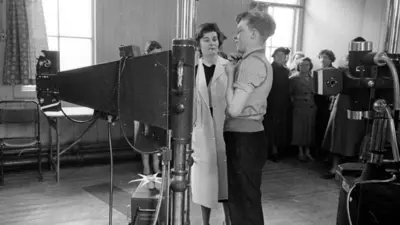We've updated our Privacy and Cookies Policy
We've made some important changes to our Privacy and Cookies Policy and we want you to know what this means for you and your data.
Disarming the NHS as a political threat
- Author, Nick Robinson
- Role, Political editor
Disarming the greatest threat to their election chances. That, at least in part, is what the announcement of a promise of ÂŁ2 billion for the NHS is all about.
For months ministers have worried about the mounting evidence of an NHS under mounting strain.
For months Labour have believed that evidence of the crisis they'd long predicted would soon emerge. Ed Miliband told his aides that it was time to "weaponise" the NHS.
The news that a 16-year-old girl had been kept in a police cell because a hospital bed could not be found for her was the first in what could be a series of powerful personal stories about the shortage of beds in the health service.
Hospitals are warning that patients are being kept in ambulances because there's no space in A&E or treated on trolleys inside because there are no beds on the wards because there aren't enough beds for elderly patients to be moved into.
The money allocated cannot guarantee there will be no such problems in the future but what it has already delivered is something almost as valuable politically - the endorsement of the chief executive of the NHS in England, Simon Stephens.
Mr Stephens praised the announcement as showing that ministers had "listened" to his call for more funding and "responded with the funding we need".
That won't stop Labour attacking the Tories record on health but it will certainly offer them some protection - not least because Mr Stephens is no Tory. He used to be the political adviser to a Labour health secretary and then to Tony Blair.
Top Stories
More to explore
Most read
Content is not available








